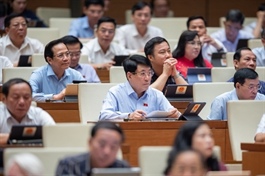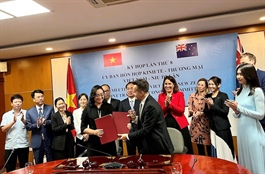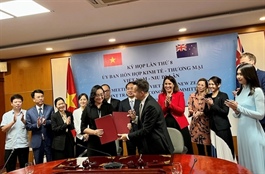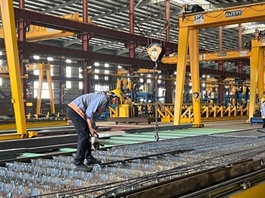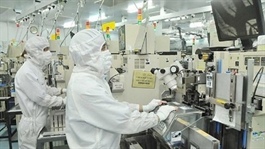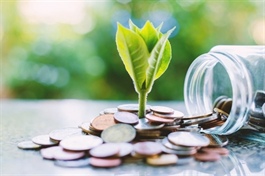Thai Nguyen bagging upbeat results
Thai Nguyen bagging upbeat results
Thai Nguyen province in the northeastern region is leveraging flexible and efficient policies to extend its growth trajectory.

Amid forecasts that both the local and global economy will continue to face complexities for the foreseeable future, from the outset of this year Thai Nguyen has come up with drastic measures and key tasks to achieve its goals.
These concerted efforts are already being duly rewarded, as Thai Nguyen secured fair growth across the board, with that of several fields and sectors surpassing the country’s average.
Regional GDP has expanded 6.5 per cent so far this year, nearly double the country’s growth level. In the first four months of 2023, Thai Nguyen’s industrial production index rose 4.54 per cent on-year, in which the processing and manufacturing sector inched up 4.56 per cent, and power production and distribution hiked 4.59 per cent on-year.
Although such growth is still below expectations, it is a strong result given that the industrial sector contracted 2.3 per cent in Q1 of this year compared to one year ago.
Total budget revenue in the province during the period reached $228.2 million, equalling 26.2 per cent of the year’s estimate.
Also in the first four months, Thai Nguyen granted business registration certificates to 337 businesses with a total registered capital value amounting to $168.9 million, bringing the total number of businesses in the province to nearly 9,160 worth $5.78 billion in total capital value.
Signs of economic development became clearer, as reflected in the latest report by Thai Nguyen Department of Planning and Investment.
Along with this, in the first four months of this year, nine foreign-invested projects with a total registered capital approximating $98.2 million were granted certificates, and three existing projects approved for $7.45 million in supplemental capital.
As of now, Thai Nguyen is home to 181 foreign-invested projects with a total cumulative capital value reaching $10.53 billion, ranking first in the northern mid-land and mountainous region and placing 11 out of all localities.
By virtue of open investment climate, plus utmost support by the province’s management, major foreign-invested businesses are making efforts to upscale their investment in Thai Nguyen.
In a working session with the province’s top leaders in March, Choi Joo Ho, CEO of Samsung Vietnam, stated the company’s commitment to production expansion in Thai Nguyen, which is the offspring of close attention and support by the province’s leaders and local management agencies, as well as residents.
In the forthcoming years, the Samsung Vietnam complex commits to maintaining stable production in the province, in 2023 alone making strides to record a 5 per cent hike compared to 2022 and researching the investment and trial production of flip-chip ball grid arrays, to be ready for commercial production from November.
Likewise, China’s Sunny Group has decided to expand investment in Thai Nguyen. In March, Sunny Group and leaders of Thai Nguyen signed an agreement on investment expansion worth $2-2.5 billion in the presence of Deputy Prime Minister Tran Luu Quang.
China’s biggest optical maker has proposed to build an industrial centre covering 26-40 hectares in Yen Binh Industrial Park to manufacture camera lenses and optical equipment for automobiles.
On May 9, Trinh Viet Hung, Deputy Secretary of Thai Nguyen Party Committee and Chairman of Thai Nguyen People’s Committee, stressed the importance of closely following the set growth targets to create motivating forces and fresh added values to beef up growth, in which industry provides the resources for development.
Hung urged sectors and localities to keep close eyes on the progress of key works and projects, accelerating industrial park construction pace, and strengthening external activities to further entice investment.
Overall, leveraging existing potential and advantages, Thai Nguyen aims to become a modern-oriented economic and industrial centre for the northern midlands, mountainous, and Hanoi capital regions by the end of the decade.




